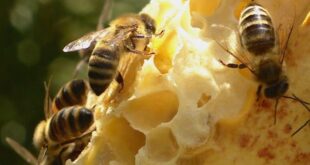National Plumbing Code in Canada does not require washroom stalls to have own trash cans

When you push the button or press the handle to flush a toilet, you probably don't give much more thought to whatever is swirling down — but a Kitchener, Ont., engineer thinks maybe you should.
Barbara Robinson says she wants to change the national plumbing code so that all washrooms have a trash can in each stall. This would encourage people to throw out sanitary products and wipes instead of flushing them, which in turn can clog the sewers.
"It's a huge problem," Robinson, founder of Norton Engineering, said in an interview on CBC Kitchener-Waterloo's The Morning Edition. "We get blockages in sewers, we get fatbergs, pump stations shut down and all that material ends up at the sewage treatment plant."
They're flushing these products because they have no choice.
– Barbara Robinson, engineer
Robinson, who used to work for the City of Kitchener, said people have been known to flush things down the toilet because of a lack of immediate access to a trash can.
"There's a trash can out at the sinks, but there isn't a trash can in each stall. So women who are in public at their office or at the gym and are menstruating have to somehow get that product from the stall out to the public trash can in the main part of the washroom. We're provided little bags to do this with. However, in my investigations, I discovered that we know women never leave the stall with that little bag," Robinson said.
"They're flushing these products because they have no choice."

The solution? Robinson says it's to change the National Plumbing Code in Canada — it currently doesn't require that all washrooms have a trash can in each stall.
Blocked pipes 'ongoing issue' in Waterloo region
Dan Meagher, the Region of Waterloo's acting manager of hydrogeology and water programs, said non-flushable items going down toilets is an issue that affects wastewater operations in almost all jurisdictions.
"At our sewage pumping stations and wastewater treatment plants, we see plugging of the pumps and the need for emergency shutdowns and maintenance in order to get the pumps working again," he said in an email to CBC News. "This can also require pumps, screens and other equipment to be replaced."
He didn't have an exact cost estimate for how much the region spends on this kind of work, but said maintenance like an annual inspection and a flushing program to keep the pipes clean are costing all taxpayers.
In 2016, Woolwich Township reminded residents to throw their cosmetic cloths and baby wipes in the garbage because township staff were needing to deal with the buildup of items daily.
At the time, the township's superintendent of public works, Barry Baldasaro, said the wipes cause the most damage when they stick to the rotating blades inside sewage pumps. If the pumps jam or clog, the pumping station automatically shuts down and must be flushed out.
It's also been a problem in cities across the country, including:
- Halifax, which saw multiple pump failures last August and reminded people to avoid flushing "flushable" wipes.
- Calgary, which said last July that those wipes were a top reason the city received more than 7,200 calls to clear blockages in 2021.
Marissa Mitton, leader of Calgary's wastewater operations and maintenance department, told CBC Calgary that "more often than not, we do find a buildup of unflushable items, including flushable wipes," when crews respond to those calls.
Meagher said it's important to remind residents never to flush any wipes labelled as "flushable," fats, greases and other items that are not meant to go down the toilet.
"It can also be very expensive on an individual basis if wipes flushed in their own homes cause blockages in the pipes leading from their house to the larger pipes in the distribution system," he said. "Any repairs of these blockages will be at their own expense."
*****
Credit belongs to : www.cbc.ca
 MaharlikaNews | Canada Leading Online Filipino Newspaper Portal The No. 1 most engaged information website for Filipino – Canadian in Canada. MaharlikaNews.com received almost a quarter a million visitors in 2020.
MaharlikaNews | Canada Leading Online Filipino Newspaper Portal The No. 1 most engaged information website for Filipino – Canadian in Canada. MaharlikaNews.com received almost a quarter a million visitors in 2020.







